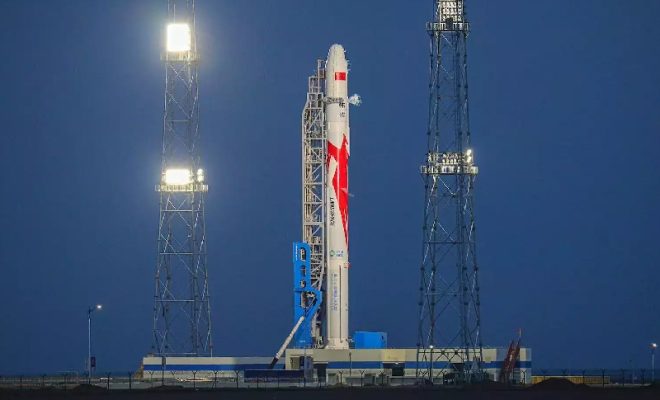Chinese Startup Launches Satellites Using Methane-Powered Rocket

China has made a significant leap in its space endeavors with the successful launch of satellites using its methane-powered rocket, Zhuque-2. The rocket, manufactured by a Chinese private rocket startup called LandSpace Technology, successfully placed three satellites into orbit.
This marks a crucial milestone for the company, demonstrating the readiness of their methane and liquid oxygen-powered vehicle for commercial launches.
Methane as a rocket fuel is gaining attention because it promises cost reduction and supports the development of cleaner, more efficient reusable rockets. This successful launch could boost investor confidence in methane as a viable option for rocket fuel.
LandSpace Technology’s Zhuque-2 rocket is capable of lifting payloads totaling 1.5 metric tons into a 500-km orbit. The company plans to enhance this capacity to 4 tons in upgraded versions. The significance of this achievement is not just in the launch itself but in the potential it holds for future space missions and satellite deployments.
This launch was particularly noteworthy because it involved the successful deployment of satellites into a sun-synchronous orbit at about 460 kilometers above the Earth.
The details of these satellites and their purposes weren’t fully disclosed, but they are believed to be test satellites developed by Chinese startups, including Spacety. Two of these satellites are linked to another company named Hongqing, which LandSpace Technology has a stake in.
The Zhuque-2 rocket, with its latest success, has shown that it’s reliable enough for commercial launches. This achievement is not just a feather in the cap for LandSpace Technology but also a significant development for China’s burgeoning private space industry.
Several Chinese private rocket startups are competing in this field, aiming to meet the rising demand in China’s expanding commercial space sector.
Also Read: PM Modi Can’t Be Forced To Take Action Against India’s Interests: Russia
This development comes amid global competition to establish satellite constellations, offering alternatives to existing systems like Elon Musk’s Starlink. It reflects the growing capabilities and ambitions of China in the space sector, especially in the realm of private space enterprises.
The successful launch of satellites by China’s methane-powered rocket is a testament to the rapid advancements in space technology and the increasing role of private companies in this domain.



